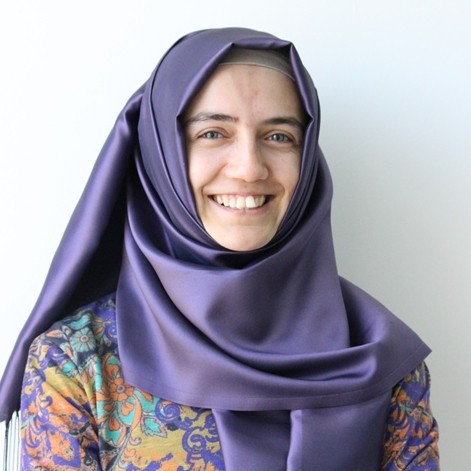Research Article
Aim & Scope
Bartın University Journal of Faculty of Education (BUEFAD) (e-ISSN 1308-7177) is an online, open-access, free of charge, international and refereed journal which is published by Bartın University Faculty of Education. BUEFAD is published quarterly in January, April, July, and October. Scientific articles conducted in various areas of research in learning, teaching and education are published in the journal. In each issue of a volume, 15 articles are published. Original manuscripts which include research in qualitative, quantitative and mixed methods conducted in the educational contexts ranging from pre-school to adult education are welcomed to be submitted to BUEFAD.
Bartın University Journal of Faculty of Education started its publication history in 2012. It is published in 4 issues; in January, April, July, and October. Articles submitted to the journal are reviewed in an independent, bias-free manner and under the principles of double-blinded refereeing. All articles are required to be submitted in English text only. An abstract (250 words maximum) and title of the manuscript in Turkish language should also be submitted. Authors whose mother tongue is not Turkish may request a translation service which is free of charge, from the editors of BUEFAD in the messages tab on DergiPark system. All papers published in BUEFAD are assigned with a Digital Object Identifier (DOI) number and authors are not charged any fee in any of the progresses of reviewing and publishing.
Scope
BUEFAD provides a platform for the publishing of studies in the fields of; learning, teaching and education. The primary criteria in the process of reviewing and selecting are related to contribution in the areas of learning, teaching, and education. The specific scope of the manuscript must be accurately selected in the journal's list of scopes included in the manuscript submission page on the DergiPark system. Original manuscripts which include research in qualitative, quantitative and mixed methods conducted in the educational contexts ranging from pre-school to adult education are welcomed to be submitted.
All articles are required to be submitted in English text only. An abstract (250 words maximum) and title of the manuscript in Turkish language should also be submitted. Authors whose mother tongue is not Turkish may request a translation service which is free of charge, from the editors of BUEFAD in the messages tab on DergiPark system.
BUEFAD prioritizes manuscripts which:
- assist in the development of new educational models, assessment tools, and interdisciplinary research designs in education,
- effectively connects theory and practice while using rigorous scientific methods,
- include in-depth examination of local policies, programs, and innovations with an international perspective,
- make use of multidisciplinary and transdisciplinary studies,
- integrate technology into learning environments,
- develop tests of usability of educational measurement tools,
- include technology integration to improve educational practices,
- develop or evaluate a new educational model, whether theoretical or applied,
- enhance the professional development of teachers or preservice teachers.
BUEFAD may not accept studies which:
- were not conducted in the context of learning, teaching, or education
- have significant language issues affecting its overall clarity, accuracy, and coherence in the English language,
- are only limited to a review of literature (excluding rigorous systematic reviews), a book, or a concept.
- are quantitative studies which include only one independent variable (effect of A on B)
- lack a rich and rigid data collection method and data analysis (data collected from inadequate number of participants and analyses based only on demographic characteristics)
- do not cite recent publications in the literature
In making decisions, BUEFAD values the views of the editorial board, English language editors and the preliminary review reports. A manuscript may be rejected by the editors of the journal before the reviewing process begins.
- do not clearly explain the background, significance of the study and its contribution to the literature.
Author Guidelines
MANUSCRIPT SUBMISSION RULES
The submitted articles are subject to preliminary review with respect to publication, writing, qualification, content, research and ethical rules. The submissions are inspected for plagiarism through digital softwares. The articles which are found to be not suitable to the items stated in the scope of the journal may be returned to the author without going through referee review process.
⚠️The authors are required to follow the necessary steps in the File Submission page on DergiPark while uploading the required documents:
- Studies which involve clinical or experimental treatments require an ethical board permission. The necessary ethical permission should be obtained, documented and submitted in the File Submission page on DergiPark.
- Articles in Bartın University Journal of Faculty of Education are published only in English.
- Under no circumstances there may be a person, corporation or foundation name in the submissions documents before sending a manuscript.. Affiliation and names of the author(s) are uploaded in a separate file which is presented in the File Submission page on the DergiPark system.
- All manuscripts must be written in APA7 citation style and follow the Writing Rules included in this page.
For more information, follow the article submission form included in the page below:
--> Submit an article
ARTICLE TEMPLATE
Please use the format-free template below:
MANUSCRIPT WRITING GUIDELINE
Click here to download the file
Ethical Principles and Publication Policy
PUBLICATION ETHICS
Bartın University Journal of Faculty of Education makes it obligatory that the authors comply with the national and international ethical principles. In this context, it is kindly asked that the stakeholders comply with the following items:
Responsibilities of the Authors
It should be ensured that the submitted article has content originality, the quotations and citations need be to correctly prepared within the ethical principles.
For the experimental studies which require ethical board approval, conducted on animals or people in all the disciplines (including social science), the ethical board approval must be obtained and presented in the study with the related information.
The names of the authors should not be indicated in any of the process of submission.
The manuscripts should not be submitted to any other journal.
The necessary permits should be obtained when needed.
The determined principles will apply in the case of conflict of interest.
Only the names of the related authors should be included in the submissions, unrelated names should not be included.
The referees may ask for additional information or data, in such cases the authors should provide the referees with the requests.
The authors should not reach the referees with the purpose of affecting any process.
Responsibilities of the Referees
Referees should be objective and conduct the reviews with privacy.
Referees should only accept the studies related to their field.
The review should aim to be constructive and polite and should not include offensive language.
The reviews should only be towards the study and the factors such as; religion, gender, race, ethnicity, political or corporate matters should not influence the outcome of the review.
The submissions accepted for review should be processed within the specified timing and in compliance with the ethical principles.
In the case of conflict of interests, the submission should be rejected and the editor-in-chief should be notified.
The identity of the authors should be reached and the submissions of the authors whose identities are revealed should be rejected.
No information related to the rejected submissions should be shared or made public.
Responsibilities of the Editors
Appointing double blinded referees to the related studies after the submission passes the preliminary review.
The editors should be objective towards all the submissions.
The editors should be responsible in the case of conflict of interest.
The editors should ensure the progress within the specified timing of the process.
The editors should ensure that the processes are realized within the ethical principles.
Ethical Suitability Checklist
Have you obtained the necessary permits for the tools or data taken from other studies?
Have you complied with the rules of the journal while preparing the quotations or the citations of your study?
Have you obtained the necessary permits for the data collection or treatment tools?
Have you informed the participants and take the necessary permissions regarding informing them?
Have you taken precautions to ensure the privacy of the participants?
In the studies which include more than one author, have you prepared the order of the author names appropriately?
If any material or content is used which are subject to copyright, have you taken the necessary permissions?
Have you obtained and presented/indicated in your article the necessary ethical board approval for the studies which are conducted on animals or people?
PUBLICATION POLICIES (23 items)
1. Bartın University Journal of Faculty Education is an international refereed journal in which scientific journals in the field of education are published in English. The journal started publishing three issues; in February, June and October are being published yearly. While the journal took under review Turkish or English articles in the past, starting from the February 2020 issue, all articles are required to be submitted in English only.
2. The journal publishes scientific articles which have a general place in the community of research in teaching and come from various areas of research in teaching and related disciplines.
3. Additionally, on the term of not exceeding one per year, a special issue may be published on the current affairs in education and proceedings of the national/international meetings (symposium, convention, conference etc.).
4. Copyright royalties are not paid to the authors of the publications.
5. The manuscripts submitted to the journal are first subject to preliminary review by the Secretariat with respect to writing rules and suitability with the article template, and then forwarded to the Editor-in-Chief, and editors in the related field. The submitted articles are inspected with respect to publication, writing, qualification, content, research and ethical rules. The articles which are found to be not suitable are returned to the author without going through referee review.
6. In line with the criteria determined by TURKISH ACADEMIC NETWORK AND INFORMATION CENTER (ULAKBİM), all authors must present approval of ethics committee for their manuscript.
7. All articles submitted to the journal are reviewed by at least two referees under the principles of double blind refereeing.
8. Articles which are found suitable by the editorial board are sent to at least two field referees. The authors re-send their articles by taking into account the revisions and suggestions stated in the assessment form prepared by the referees. The editorial board make the decision to whether or not publish the articles which are revised. Journal editors have the right to make revisions, -even when the referee process is affirmative- and to make the decision of publishing or not. The articles which are decided to be published are sent back to the original author(s). The responsibility of the errors and writing mistakes belong to the author(s).
9. The authors who would like to withdraw their submission which is in the assessment process are required to notify the demand by e-mail to buefad@bartin.edu.tr. An article which is approved and queued for publication cannot be withdrawn.
10. The editorial board is consulted for determining and updating the publication principles of the journal, and referee assignment process when needed.
11. The submitted articles cannot be published or submitted to be published to anywhere else.
12. Published or not published, the articles cannot be returned.
13. The journal is free of charge and does not require any payment including the submission and publication process.
14. Per author, maximum of one (1) academic research in each issue, and two (2) academic research in a year is allowed to be published.
15. All the articles published in the journal are open access and distributed under the conditions of CommonsAttribution-NonCommercial 4.0 International License
16. Authors may request to exclude certain referees because of ethical reasons or conflict of interests.
17. Authors may object to the referee reports or editorial decisions. In such cases, the authors are requested to state their reasoning behind the objection. Editors may start a new reviewing process if deemed necessary after an objection.
18. The articles are submitted via the portal on https://dergipark.org.tr/buefad. The articles which are attempted to be submitted otherwise will be disregarded. The referee process will also take place on the same system.
19. All articles submitted must be subject to preliminary review with respect to writing rules and journal template.
20. The authors are obligated to prepare their publications in accordance with APA 7 (American Psychological Association) standards.
21. All publications at BUEFAD are archived in the database of Bartın University Library
22. Authors are free to upload a version of their works to an external open-access platform.
23. BUEFAD Editorial Board and the owner of the journal have the liberty to select the articles to be published in each volume and issue.PUBLICATION PROCESS
Blind Refereeing
Bartın University Journal of Faculty of Education makes use of double blind refereeing method in the review process of the articles. In the double blind refereeing method, the identity of authors and referees are concealed.
Initial Review Process
The articles which are submitted to the journal are first subject to preliminary review of writing rules and journal template suitability by the Secretariat, and then forwarded to the Editor-in-chief with the purpose of referee assignment. The submitted articles which are found to be unsuitable in terms of writing rules, originality, and accordance with the publication principles are returned to their author without a referee review. In the preliminary review, the field/department editors inspect the introduction, literature review, method, findings, results, assessment, and discussion sections of the articles with respect to suitability with the publication principles and content of the journal. The articles which are found ineligible after the review are returned to the author along with the review report prepared by the field editor in maximum of 30 days. The articles which are found to be eligible are taken under referee review.
Referee Review Process
The articles are sent to the referees according to the content and referee speciality. The article which is found to be eligible by the editors is forwarded to at least two referees for review along with a review form. The referees are given 30 days for the review. Within this period, a new referee may be assigned in case the referee does not respond. It is obligatory to fill out the "Revision Template” which is prepared by the referees or the editors containing revisions within 30 days. The referees may decide on the suitability by inspecting the readjustments as well as requesting multiple revisions.
Many factors take role in the selection of referee. Experience, suitability of field, past experiences between the editor and referee are the determining factors.
Author(s) may request to exclude certain referees for the reason of conflict of interests.
The referee list is reviewed and refreshed and published on the index periodically with every issue by the Editors.
The referees are sent refereeing certification after the publication issue which includes the reviewed articles.
Review Results
The feedback received from the referees is examined by the field/department editors in 14 days at the latest. As a result of this examination, the field editor informs the editors of the final evaluation. The editors prepare the editorial board remarks in accordance with the field editor and referee assessments. A new referee may be assigned following the review report; in addition, there may be an approval, revision or rejection decision.
How Long Is The Publication Process?
It is anticipated that the evaluation process of the articles submitted to Bartın University Journal of Faculty of Education concludes in 6 months. However, this period of time may extend depending on revision requests, duration of the revisions, and re-evaluation of the articles.
Revision Directions and Uploading Guide
At Bartın University Journal of Faculty of Education, one or more revisions may be requested by the field editors and/or referees for the articles in review process. The authors are obligated to apply the requested revisions by using the “Revision Template”. The authors should make the revisions by using “Track changes” feature or by using the red colour on the original document. The authors should upload the documents; (1) revised document with track changes, (2) the “Author Revision Chart” prepared by using the “Revision Template”.POST-ACCEPTANCE
At Bartın University Journal of Faculty of Education, the articles approved after review are gone through; plagiarism re-inspection, reference list organizing, citation control, layout and typesetting, DIO number assignment, respectively.
Plagiarism Inspection
Due to the publication ethics of Bartın University Journal of Faculty of Education, every article which went through the “Blind Referee Review Process” has to be re-inspected for plagiarism for the revisions made after the referee requests. Within this context, English and Turkish copies of every article goes through plagiarism inspection. The plagiarism inspection is made by Turnitin and iThenticate softwares. The board makes the final decision in light of the plagiarism inspection report of every article. Revision of the mistakes can be request from the authors or the articles may be returned. The financial responsibilities (if any) occurred within the inspection belong to the author(s). BUEFAD uses iThenticate for plagiarism inspection and the maximum acceptable ratio for plagiarism analysis is 15% (a revision may be requested from the authors for up to 20% of similarity)
Language Regulations
The article submitted to Bartın University Journal of Faculty of Education are required to be written grammatically and appropriate to the scientific literature, in an explicit and plain manner. The journal board may request proofreading during the review process or after acceptance. The journal board has the claim to not publish articles which are found to be inadequate in terms of compliance with the language and expression rules, even when the review process is affirmative.
Citation and References Control
Due to the publication ethics of Bartın University Journal of Faculty of Education, it is obligatory that the citations and references included in the approved articles are correct and thorough. Within this context, the approved articles are gone through citation and reference control. The authors are responsible for carrying out the tasks and procedures assigned by the board. The financial responsibility of the control belong to the author(s). The journal board has the claim to not publish articles which are found to be inadequate in terms of compliance with the references and citations rules even when the review process is affirmative.
Layout and Typesetting Procedure
Due to the publication ethics of Bartın University Journal of Faculty of Education, it is obligatory that the articles are prepared in a common typesetting and complete page layout. Within this context, the approved articles are adjusted in terms of page layout and typesetting by the board. The financial responsibility of the control belong to the author(s). The journal board has the claim to not publish articles which are found to be inadequate in terms of compliance with the layout and typesetting rules even when the review process is affirmative.
DOI Number Assignment
Digital Object Identifier (DOI) is a unique access number which enables the identification and accessibility of each article published electronically. Every article published at Bartın University Journal of Faculty of Education is assigned with a DOI number. The articles which went through the reference control and print-ready after the approval process are assigned a DOI number by the board.
Price Policy
BUEFAD publishes articles free of charge.
Indexes
Citation Indexes
Other Indexes
Journal Boards
Editor-in-chief

Co-editors


Gokkurt Ozdemir (PhD) graduated from Karadeniz Technical University Fatih Faculty of Education Secondary Education Mathematics Fields Education Mathematics Teaching program in 2007 with a non-thesis master's degree. She completed his integrated doctoral education between 2010 and 2014 at Atatürk University, Institute of Educational Sciences, Department of Primary Education, Department of Mathematics Education. She worked as a research assistant at Atatürk University Kazim Karabekir Faculty of Education between 2011 and 2015. Gokkurt Ozdemir (PhD) was appointed as a faculty member at Bartin University, Department of Mathematics and Science Education, Division of Mathematics Education in 2015. Gokkurt Ozdemir (PhD) receiving the title of associate professor in 2018, her research areas include technology-supported mathematics teaching, geometry teaching, pedagogical content knowledge, mind and intelligence games, problem solving, problem posing and misconceptions. The studies she has and is being carried out are related to Goal 4: Quality Education of the United Nations 2030 Sustainable Development Goals.
Section Editors

Assist. Prof. Dr. S. Burcu Özgülük Üçok has graduated from Bosphorus University, from the double major program of Preschool Education and Guidance and Psychological Counseling. Afterwards, she took her masters and PhD degrees from the Department of Educational Sciences, Psychological Counseling and Guidance program, METU. In her master’s thesis, she studied Response Styles Theory and investigated the relationship of response styles and problem solving to the depressive symptoms of preadolescents. In her PhD dissertation, she examined the mediating roles of relationship satisfaction and satisfaction with dual-career lifestyle in the association between investments and commitment. After having her master’s degree, she worked as a preschool teacher for two years at Robert College Child Study Center and she leaded guidance and psychological activities there. Afterwards, she worked as a school counselor for 4 more years at prominent private schools in Istanbul and she started to work as a psychotherapist, as well. She has been working as an assistant professor in the Department of Educational Sciences, Psychological Counseling and Guidance Program, at TED University since February, 2021. Her research areas are rumination/ distraction, anger management, close relationships- child-parent relations, satisfaction, investments, and commitment in relationships, financial behaviors of families, dual-career marriages, we-ness, dyadic coping, gender identity and sexual orientation, psychological symptoms and well-being, and the education of psychological counselors. She has been conducting national and international/ cross-cultural scientific research in these areas. She has been teaching undergraduate and graduate courses at TED University.

Educational Technology and Computing

 Web
Web
He graduated from Karadeniz Technical University, Fatih Faculty of Education, Fatih Faculty of Education, Mentally Handicapped Education Program in 2003. He worked as a teacher and administrator in institutions affiliated to the Ministry of National Education until 2012. In 2007, he graduated from Ankara University Institute of Educational Sciences Adult Education Master's program, and in 2009, he graduated from Gazi University Institute of Educational Sciences Mental Disabilities Teaching Master's program. Kalkan graduated from Gazi University Institute of Educational Sciences, Teaching the Mentally Handicapped program in 2019 and still continues his academic life as a doctoral faculty member in Çanakkale Onsekiz Mart University, Faculty of Education, Department of Special Education and has taken part in many book chapters, articles and projects. Kalkan conducts professional development and early intervention studies, especially early childhood special education based on autism and young children with intellectual disabilities (0-8 years).
Mathematics Education

Dr. Kenan Çetin completed his PhD in English Language Teaching at Middle East Technical
University in 2024. His doctoral thesis focuses on the implementation of a reflective thinking and
collaboration-based lesson study model during the teaching practicum with the participation of
prospective English teachers. His academic research centers on the use of
technology in language education and teacher training and he is keen on personal development and has experience in video editing, graphic design, and web interface development.

Curriculum and Instration , Instructional Technologies


Fatma Ünal pursued her PhD in 2008. She was appointed as a professor in 2021. In addition, she completed her master's degree in curriculum development in education. So far, she has published many national and international articles, books, book chapters, and proceedings. She has also conducted projects in social studies education, ecological sustainability, citizenship education, curriculum development, lifelong learning, and teaching materials such as textbooks. She still serves as a lecturer at Bartın University in the Faculty of Education.


Erken çocukluk eğitimi/Okul öncesi eğitimi alanında lisansını Boğaziçi Üniversitesi, yüksek lisansını Abant İzzet Baysal Üniversitesi, doktorasını Gazi Üniversitesinde tamamladı. Ulusal ve uluslar arası alanda makale ve kitapları bulunmaktadır. Araştırma alanları STEAM, bilişsel gelişim (akıl yürütme), doğa, ve ailedir.

Prof. Dr. Burçin Acar Şeşen, Dokuz Eylül Üniversitesi Buca Eğitim Fakültesi Ortaöğretim Fen ve Matematik Alanları Eğitimi Bölümü Kimya Eğitimi Anabilim Dalı’nın Lisansla Birleştirilmiş Tezsiz Yüksek Lisans Programı’ndan 2003 yılında mezun olmuştur. Aynı yıl, aynı üniversitenin Eğitim Bilimleri Enstitüsü Kimya Eğitimi Doktora Programı’nda başladığı doktora eğitimini 2008 yılında tamamlamıştır. 2008 yılında İstanbul Üniversitesi Hasan Ali Yücel Eğitim Fakültesi İlköğretim Bölümü Fen Bilgisi Eğitimi Anabilim Dalı’nda Yardımcı Doçent olarak göreve başlamış ve 2013 yılında Kimya Eğitimi Bilim Dalı’nda Doçent, 2019 yılında ise profesör unvanlarını almıştır. Prof. Dr. Burçin Acar Şeşen’in genelde fen, özelde ise kimya eğitimine yönelik gerçekleştirdiği ve özellikle kavram öğrenimi, işbirlikli öğrenme, probleme dayalı öğrenme ve sorgulamaya dayalı öğrenme gibi aktif öğrenme yöntem ve tekniklerine odaklandığı uluslararası ve ulusal indeksli dergilerde yayımlanmış çok sayıda bilimsel makalesi, ulusal kitap ve kitap bölümleri bulunmaktadır. Halen İstanbul Üniversitesi-Cerrahpaşa Hasan Ali Yücel Eğitim Fakültesi Matematik ve Fen Bilimleri Eğitimi Bölümü Fen Bilgisi Eğitimi Anabilim Dalı’nda öğretim üyesi olarak görevini sürdürmektedir.

Sabrina Shajeen Alam is an Educational Psychology researcher and Learning Scientist whose work bridges educational psychology, learning sciences, and the application of educational technology (EdTech) in math cognition. She holds a Ph.D. in Educational Psychology from McGill University. Her research focuses on early mathematics learning using technology with collaborations spanning international partners, including the emerging Global Esports & Gaming Council. Dr. Alam has contributed to multiple EdTech projects in designing and evaluating digital learning frameworks and the use of EdTech tools in K-5 education. Dr. Alam's scholarship includes 11 peer-reviewed journal articles (seven as first author), two book chapters, and more than 25 national and international conference presentations, including AERA and Technology, Mind, and Society. She has received 15 academic awards, notably the Fonds de Recherche du Québec Société et Culture (FRQSC) doctoral fellowship, recognizing the originality and impact of her research.
Her work reflects a commitment to advancing equitable education, leveraging technology to support diverse learners, and contributing to innovative and meaningful solutions across various educational domains. She has established and led the Mentorship Program for Emerging Psychology Scholars (https://mpups.netlify.app/), a platform that supports emerging researchers from underrepresented communities.

Talip Gülle is a post-doctoral researcher at the University of Jyväskylä. He received his Ph.D. in English Language Education from the Foreign Language Education Department of Boğaziçi University. His research focuses on English medium instruction (EMI) in higher education, English as a lingua franca, and student learning in EMI.

Assoc. Prof. Dr. Gürhan BEBEK is a faculty member engaged in academic research within the domain of Science Education. Since the commencement of his graduate studies, his scholarly efforts have primarily concentrated on scale development methodologies. His doctoral dissertation, recognized as a pioneering study focusing on the education of gifted students, has significantly contributed to advancing the conceptual and empirical understanding of this specialized area. In contemporary scholarship, his research interests have progressively shifted towards STEM education and the development of engineering-based learning environments. His current work investigates critical themes, including the efficacy of interdisciplinary approaches in science pedagogy, the processes involved in acquiring problem-solving skills, and the profound influence of real–life–based activities on shaping educational outcomes. Dr. BEBEK has authored or co-authored numerous publications in both national and international venues, and his findings have been disseminated at various academic conferences. In his instructional role across undergraduate and graduate levels, he consistently emphasizes the integration of theoretical constructs in science education with practical, application-driven examples. Furthermore, he provides rigorous instruction and mentorship to students in crucial methodological areas, including research methodology, measurement, and evaluation. Beyond instruction, he actively directs research projects that seek to further empirical knowledge in the field of science education. These initiatives are instrumental in supporting the professional development and training of qualified researchers, demonstrating a strong commitment to academic stewardship. Prof. Dr. BEBEK has rendered service as a reviewer, editorial board member, and scientific evaluator for esteemed scholarly journals.
Dr. Hatice Cansu Bilgiç received her bachelor's degrees in Hearing Impaired Teacher Education and Preschool Teaching (Double Major) from Anadolu University, and her master's and Ph.D. degrees from the Institute of Educational Sciences at Gazi University. In her doctoral dissertation completed in 2025, she focused on relationship-based interaction interventions for children with multiple disabilities and visual impairments and their mothers. She is currently working at Gazi University, Gazi Faculty of Education, Department of Special Education, Division of Education for the Visually Impaired. Her main research interests include multiple disabilities, visual impairment, early childhood special education, parent-child interaction, and inclusive education practices. Having served as a researcher and specialist in various projects funded by TUBITAK and public institutions, Dr. Bilgiç has numerous articles published in national and international refereed journals, book chapters, and conference proceedings.
Production Editor
Research Assistant Bekir Serhat Zerey graduated from Gazi University Teacher of the Visually Impaired undergraduate program in 2014 and was appointed as a special education teacher to the Ministry of National Education in the same year. In 2016, he started to work as a research assistant at Bartın University Faculty of Education, Department of Special Education within the scope of the Faculty Member Training Program. Zerey was assigned to Gazi University for her graduate education and completed his master's degree in the field of visually impaired education. He is a PhD candidate and the process still continues. His current and ongoing studies are related to the United Nations 2030 Sustainable Development Goal 4 Quality Education and Goal 10 Reducing Inequalities. His research interests include safety skills, instructional technology education, and teacher quality.
Layout Editors

Demir took his B.A. from Hacettepe University, Division of Psychology in 2016 and Ph.D from Hacettepe University, Educational Measurement and Evaluation in 2025. The studies he has and is being carried out are related to Goal 4 Quality Education, Goal 10 Reduced Inequalities and Goal 16 Peace, Justice, and Strong Institutions of the United Nations 2030 Sustainable Development Goals. His research interests include psychometrics, validity, fairness, and large-scale testing. Since 2019, he started to work as a research assistant at Bartın University, Division of Educational Measurement and Evaluation.


In 2023, Akın graduated from Bartın University Faculty of Education, Department of Elementary Mathematics Education and started his master's degree at Bartın University Graduate School of Education, Department of Mathematics Education in the same year. Since 2024, he has been working as a research assistant at Bartın University, Faculty of Education, Department of Mathematics and Science Education, Department of Mathematics Education. The studies he has and is being carried out are related to Goal 4 Quality Education of the United Nations 2030 Sustainable Development Goals

Research Assist. Zekiye Merve ÖCAL graduated from Middle East Technical University, Department of Science Teaching in 2021, and started her master’s degree in science education at Middle East Technical University in 2023. In the same year, after starting to work as a Research Assistant at Bartın University, Department of Science Education, she transferred to Bartın University for her master's degree and she has been working at Bartın University, Department of Science Education since December 2023.

Language Editors


Gamze Ar graduated from the Department of American Culture and Literature at Hacettepe University in 2017. She earned an MA degree in American Culture and Literature from Ege University in 2020 and a PhD in the same department at Ege University. She is an instructor in the Department of Foreign Languages at Bartın University. Her main teaching and research interests are American Poetry, ekphrasism, Modernism, Greek Mythology, and African American Children's Literature.
Kişisel Bilgilerim:
AD : GAMZE
SOYADI : AR
DOĞUM TARİHİ : 24.01.1994
DOĞUM YERİ : Ankara
İletişim Bilgileri:
TELEFON : 05383521551
E-MAIL : gamzear@bartin.edu.tr
Kariyer Bilgileri:
Eğitim Bilgileri:
2009-2012 __ Fatih Anadolu Lisesi
2012-2017 __ Hacettepe Üniversitesi – Amerikan Kültürü ve Edebiyatı ( Lisans)
__ Hacettepe Üniversitesi – Sosyoloji (Yan dal)
2014-2015 __ Paris8 Üniversitesi – Amerikan Kültürü ve Edebiyatı (Erasmus)
2013-2018 __ Anadolu Üniversitesi – Uluslararası İlişkiler
2017-2020 __ Ege Üniversitesi – Amerikan Kültürü ve Edebiyatı (Yüksek Lisans)
2018-2019 __ TU Dortmund Üniversitesi – Amerikan Kültürü ve Edebiyatı (Erasmus- Tez Aşaması)
2019-2020 __ Atatürk Üniversitesi – Pedagojik Formasyon (İngilizce Öğretmenliği)
2020-2025 __ Ege Üniversitesi – Amerikan Kültürü ve Edebiyatı (Doktora)
İş Tecrübesi:
2012- 2014 __ Prestij English İngilizce Kursu (Ankara) _ İngilizce Öğretmeni
2015-2016 __ Prestij English İngilizce Kursu (Ankara) _ İngilizce Öğretmeni
2017-2018 __ English Fast (Konak-İzmir) _ İngilizce Öğretmeni
2018-2019 __ International School Ruhr (Essen- Germany) _ İngilizce Öğretmeni (staj)
2019-2020 __ Atatürk Üniversitesi Vakıf Okulları Özel Aydın Doğan İlkokulu _ İngilizce Öğretmeni (1. Sınıf)
2021- __ Bartın Üniversitesi - Öğretim Görevlisi (Yabancı Diller Yüksekokulu)
Hobilerim:
• Resim yapmak (Yağlı boya tablolar)
• Klasik Batı ve Amerikan romanları okumak ve analizlerini yapmak
• Müzik dinlemek (Caz ve Klasik)
Dil Seviyesi:
İngilizce : İleri Düzey
Fransızca: Orta Düzey

Copy Editors

Demir took his B.A. from Hacettepe University, Division of Psychology in 2016 and Ph.D from Hacettepe University, Educational Measurement and Evaluation in 2025. The studies he has and is being carried out are related to Goal 4 Quality Education, Goal 10 Reduced Inequalities and Goal 16 Peace, Justice, and Strong Institutions of the United Nations 2030 Sustainable Development Goals. His research interests include psychometrics, validity, fairness, and large-scale testing. Since 2019, he started to work as a research assistant at Bartın University, Division of Educational Measurement and Evaluation.

 Web
Web
All the articles published in the journal are open access and distributed under the conditions of CommonsAttribution-NonCommercial 4.0 International License

Bartın University Journal of Faculty of Education

























